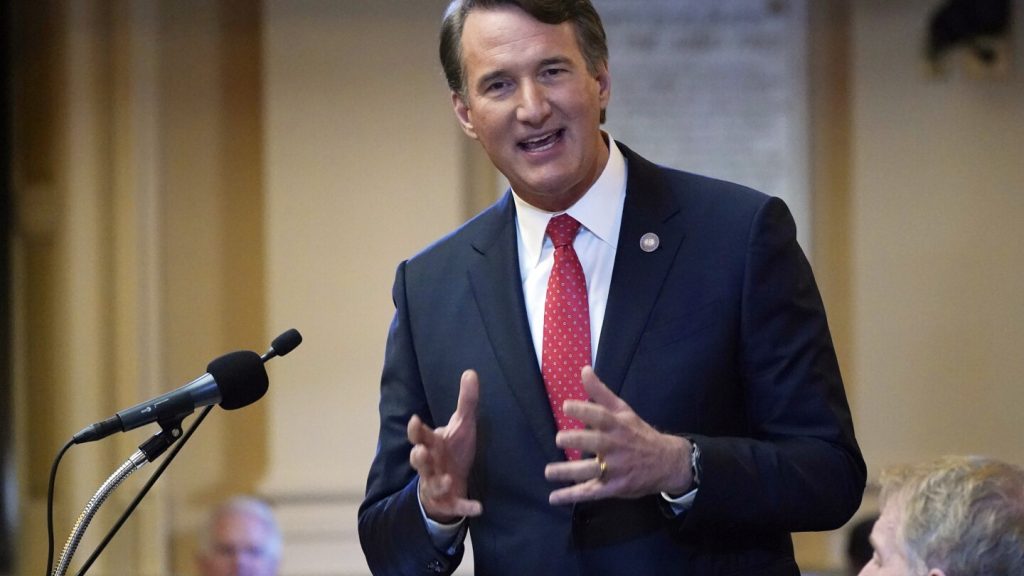Republican Governor Glenn Youngkin of Virginia signed 88 bills into law and vetoed 11 others on Friday, including legislation related to abortion services. The governor vetoed a bill that advocates said would have protected women and medical practitioners from potential extraditions related to abortion services that are legal in Virginia. Youngkin said these measures would have undermined the nation’s longstanding legal framework for extraditions. However, he surprised many by signing separate legislation supported by abortion rights groups that prohibits the issuance of search warrants for electronic or digital menstrual health data, aiming to protect women’s privacy and prevent potential prosecutions.
Senator Barbara Favola, a Democrat who sponsored the legislation, argued that the measure is necessary in a post-Roe v. Wade environment where Republican politicians, including Governor Youngkin, are seeking new restrictions on abortion. She stated that the legislation was a proactive step to protect women’s privacy, even though there were no known instances of such data being sought. Youngkin’s press secretary, Christian Martinez, defended the legislation, stating that it protects women’s personal health data without interfering with its voluntary use in law enforcement investigations. He also appreciated Favola’s work on the bill.
Despite the vetoed anti-extradition measure, some women in states with abortion bans must travel to other locations to terminate a pregnancy. Supporters of the vetoed bill highlighted this reality in pushing for its passage. In his statement attached to the vetoed bill, Youngkin expressed concern that the US’s cooperative extradition system could collapse if states were to carve out crimes based on political positions. The governor also vetoed a bill that would have prohibited state regulators from disciplining doctors for legal abortion care, regardless of where it was provided. Democrats criticized Youngkin’s vetoes, accusing Republicans of limiting women’s options.
Virginia stands out as an outlier in the South for its abortion access compared to other states that have enacted restrictions post-Roe v. Wade. Youngkin’s attempts to implement a 15-week ban were blocked by Democrats who control the state legislature. In addition to the abortion-related bills, the governor signed measures reinstating the Virginia Minority Business Commission and expanding a tax credit for secure storage devices for firearms. He vetoed a bill establishing a paid family and medical leave program, arguing that some employers already offer such programs and that the proposal was unfair in exempting state government employees.
Youngkin also made amendments to 11 bills, including one allowing the city of Petersburg to pursue a referendum on establishing Virginia’s fifth casino. Petersburg had been pushing for a casino after voters in Richmond rejected the idea twice. The governor’s change removed a requirement for the legislature to reconsider the casino bill next year. Youngkin faces a deadline to complete his review of legislation from the regular session that ended in March. Lawmakers will convene in April to consider his proposed amendments and potentially override his vetoes, although Democrats hold narrow majorities in both chambers.


